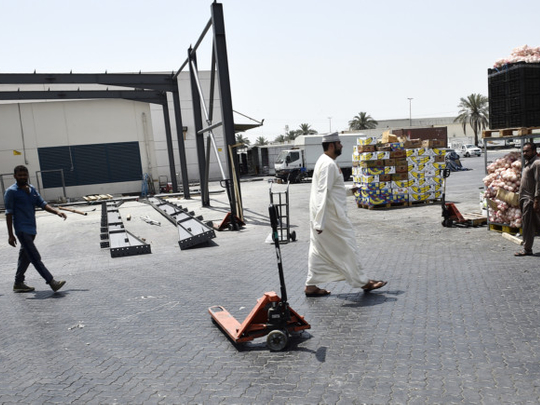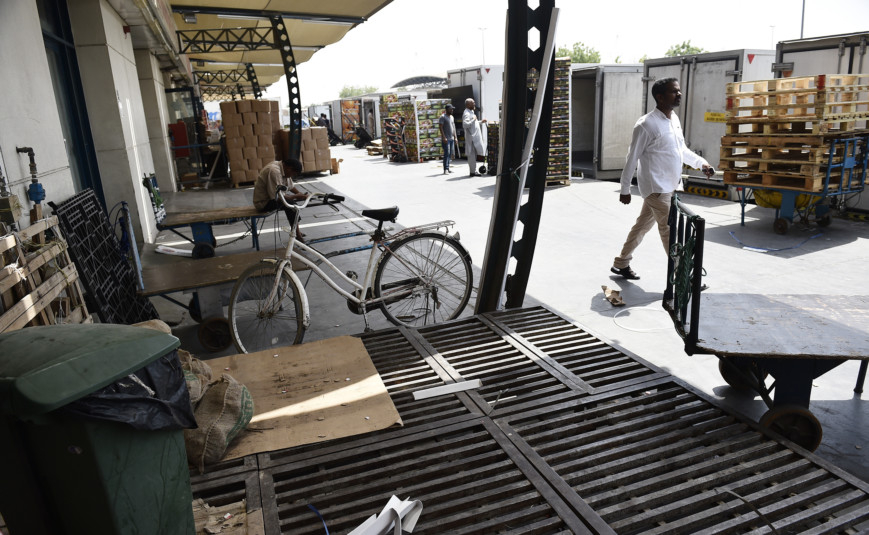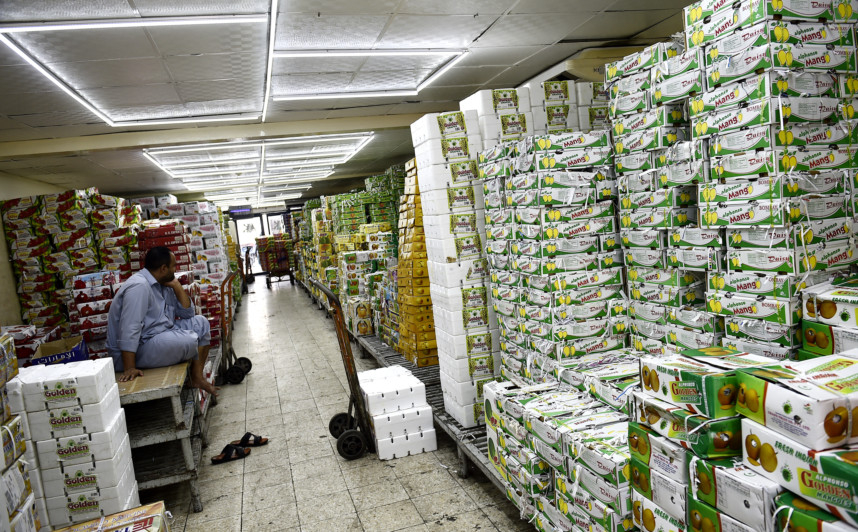
Dubai: Wholesale traders at the Central Fruits and Vegetables Market in Al Aweer say their business has been hit after Omani authorities introduced new import restrictions last month.
According to them, Omani authorities require all food imports to the country tested and certified from a Jebel Ali-based laboratory, which charges Dh1,200 per type of food item in a container, while the certification costs around Dh600.
The new requirements with added costs have forced the Omani buyers to shun the Al Aweer market, who according to traders accounted for almost 50 per cent of daily sales. “Usually 50 per cent of my customers are from Oman, I import banana from India and re-export it to Oman. But now 90 per cent of my Omani customers have disappeared since these new requirements were introduced before Ramadan, they say can’t make any profit with the added cost of testing and certification,” said Ahmad Kabeer, a longtime fruit trader based in Al Aweer.
As usual stocks of fruits are arriving from around the world at Al Aweer market everyday and are piling up at storage houses. With hardly any takers, traders are worried the fruits will soon begin to perish, leaving them with heavy losses.
“We have stocks arriving everyday, since the sales have slowed down drastically, I had to book a cold storage in Sharjah as I have run out space in my storage here. I am afraid, if the situation remains the same the fruits will begin perishing. The prices have already come down up to 40 per cent, but we don’t mind that as long as there are sales,” added Kabeer.
A 13kg box of Indian bananas that cost Dh31, is being sold wholesale at Dh22 right now. Though, this might bring down retail prices locally, Kabeer says even with lower prices the local consumption won’t be sufficient enough to cover up for exports to Oman.
The sprawling market’s block four is dedicated totally to Omani buyers. “Usually this place is full of Omani trucks with red number plates, but since the last week of May, people have just stopped coming. Usually in Ramadan business is better than what we have in other months, but things have changed due to these new requirements,” said Abdul Rasheed, who deals in different varieties of fruits.
According to traders, under normal circumstances, around 18 to 20 containers of fruits and vegetables used to leave Al Aweer market for Oman every day, and now that number has been reduced to only two to three containers.
“In a container, we normally have more than one variety of fruit, mostly four varieties, and if testing and certification for each variety is going to cost around Dh2,000, the exporters will have to bear an additional cost of at least Dh8,000 per container, which our customers are unable to afford and even a few of those who are following the new procedures and exporting the products to Oman are adding the cost to the retail price and in the end the consumers suffer,” said Basheer Ahmad, another longtime fruit importer.
Ahmad said almost 40 per cent of the stock he imported recently is still lying in the storage.
Interestingly, Kabeer added that shipments of fruits and vegetables are being allowed to enter Oman from other destinations and the new documents are required only for goods entering from the UAE.
“I found out that no testings and certification are required if want to export fruits from India directly to Oman, but the problem is that there is only one ship leaving Mumbai every week for Oman and it takes longer to reach, so it is not feasible to export fruits directly. The location of Dubai is so ideal that goods arrive here from most places in around four to five days,” said Kabeer.
With the season for Pakistani mangoes just beginning, Faheem, who is a major importer and re-exporter of the popular product, is worried as the new development has left him with no choices.
“We wait for this season for the whole year and right when these imports started we have this issue. All my stocks are stuck here right now, at least six containers are waiting to be exported and ripe mangoes are beginning to spoil,” said Faheem, whose firm is the biggest exporter of Pakistani mangoes in Dubai.
Traders suggest that if there are more than one laboratories for testing and the if the price for the process is lower, something could still be worked out.









